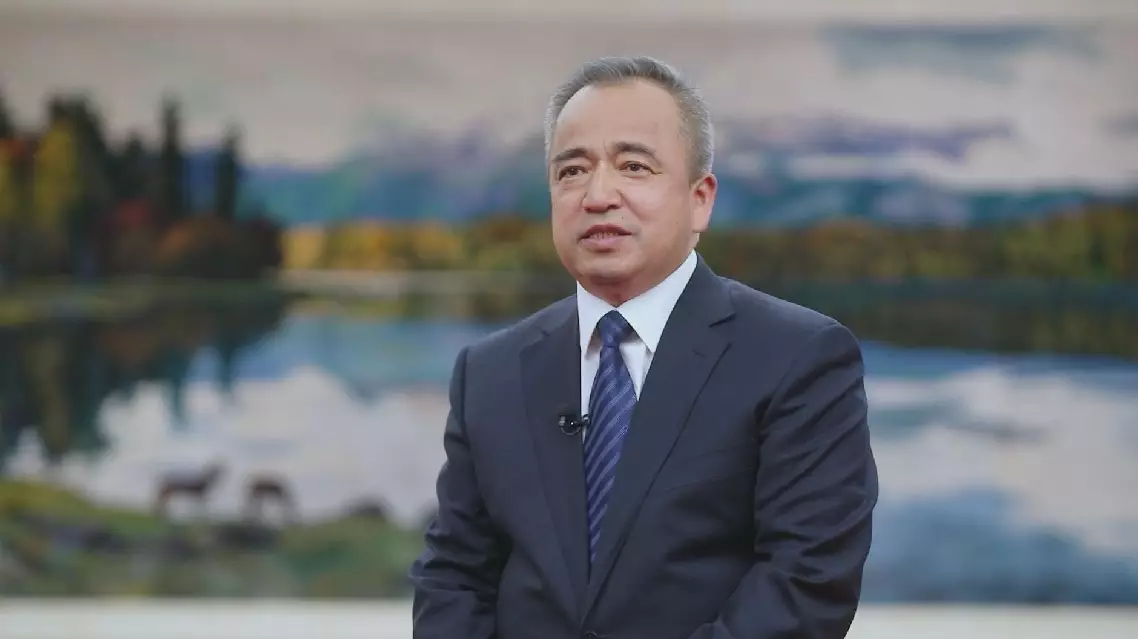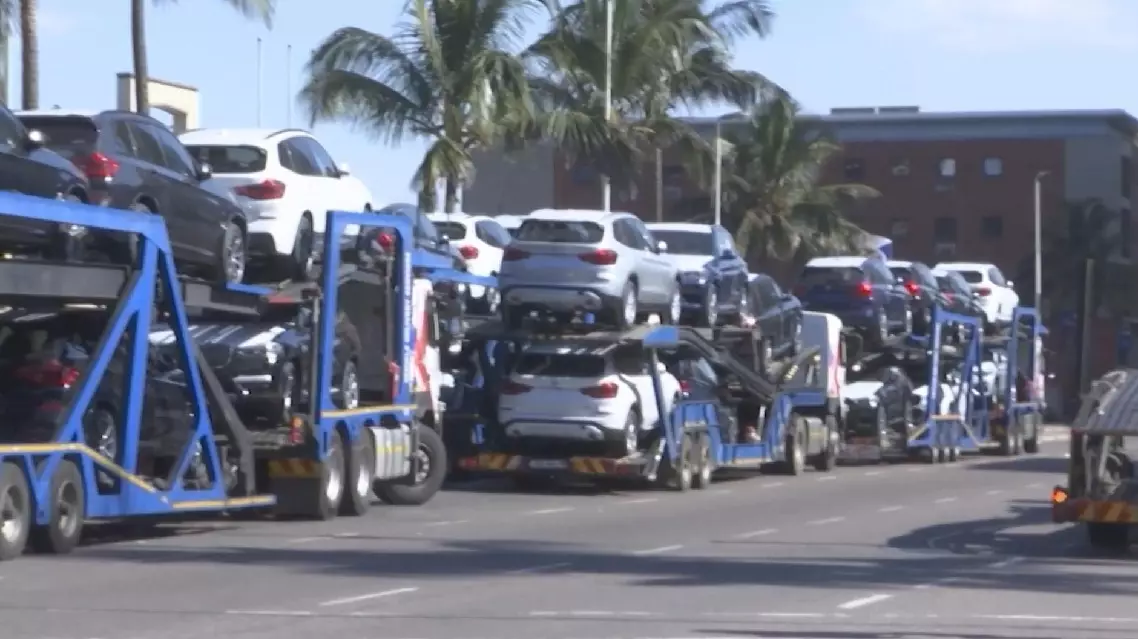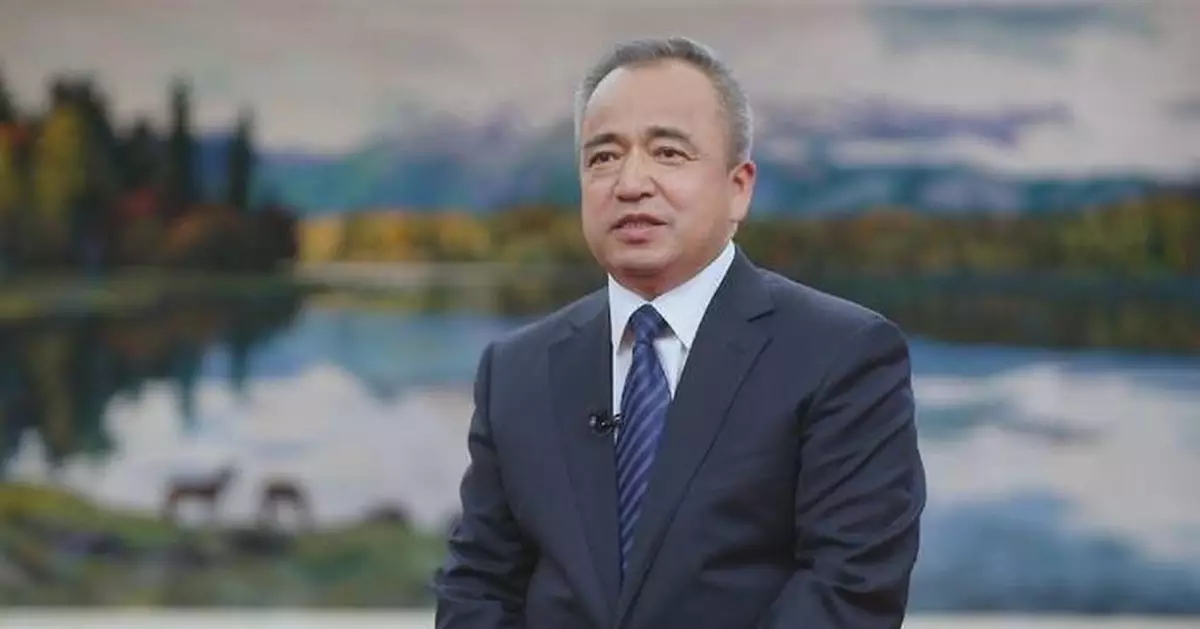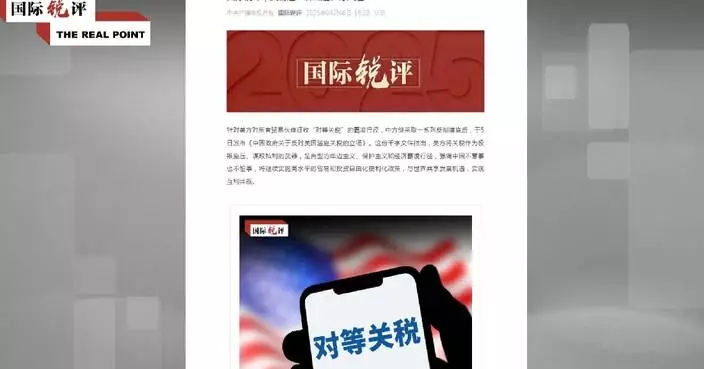Northwest China's Xinjiang Uygur Autonomous Region is trying to offer better government services to create a better business environment and help private enterprises get stronger, do better and grow bigger.
At a symposium on private enterprises in February, Chinese President Xi Jinping, also general secretary of the Communist Party of China Central Committee, emphasized the importance of promoting the healthy and high-quality development of the private sector.
Erkin Tuniyaz, chairman of the people's government of Xinjiang Uygur Autonomous Region, in an exclusive interview with China Media Group, outlined a series of policies and measures implemented by the local government to optimize the business environment. The endeavors include tax reduction and refunds, multi-channel financing support, sustained efforts in clearing overdue payments, and the establishment of an effective communication mechanism between government and enterprises.
"Fifteen measures have been implemented to optimize financial services and support the growth and expansion of private enterprises in Xinjiang. We also provided financing support through multiple channels. Meanwhile, designated leaders are actively engaging with private enterprises to foster a close and transparent government-business relationship. For those enterprises facing operational difficulties, customized support measures have been formulated to help them overcome the challenges, which has greatly boosted the development confidence of private enterprises," he introduced.
Erkin Tuniyaz also emphasized that the province is firmly committed to accelerating the development of a modern industrial system, further promoting private enterprises' investment in Xinjiang, and continuously cultivating a market-oriented, law-based, and internationalized business environment to inject sustained and robust momentum into the growth of private enterprises.
"We will thoroughly implement the spirit of General Secretary Xi's important speech at the symposium on private enterprises, and fully implement the opinions and measures to promote the development and growth of the private economy. In short, we will formulate policies, introduce measures and solve problems in accordance with laws and regulations based on what private enterprises want, hope for and worry about, and do our utmost to help make private enterprises stronger, better and bigger. We will take concrete actions to celebrate the 70th anniversary of the establishment of Xinjiang Uygur Autonomous Region," he said.

Xinjiang steps up efforts to support private businesses
A 25 percent import tariff on all foreign-built vehicles entering the United States has raised serious concerns for manufacturers in South Africa.
Automotive giants like Mercedes and BMW have long used South Africa as a base for global exports -- but those plans may be shifting into reverse gear after the U.S. announced the punitive measures.
"If you take, for example, BMW, 97 percent of the X3 that we are producing in Rosslyn is exported out of the country. We only sell 3 percent in South Africa, and there's a huge number of those vehicles that also go into the U.S. So there are companies in South Africa that are purely here not because they are selling vehicles in South Africa; they are here to produce vehicles for the global market, and it's important for them to remain globally competitive," said Mike Mabasa, CEO of the National Association of Automobile Manufacturers of South Africa.
U.S. automaker Ford, which has deep roots in South Africa, is also in the crosshairs.
The company recently invested over 300 million U.S. dollars to upgrade its Silverton plant in Pretoria, South Africa, for the production of the world's only plug-in hybrid Ranger, which has just entered production but could face delays or restrictions.
"If an American citizen wants to buy specifically a Ford Ranger that is a plug-in hybrid, they can only place an order in South Africa, nowhere else in the world. So, that means, obviously, the capacity of Ford to be able to produce those vehicles in big volumes is going to be constrained, because Americans are going be looking at another Ford that is produced in another country, or even in the United States," said Mabasa.
South Africa has long enjoyed duty-free automotive exports to the U.S. under the African Growth and Opportunity Act, but that relationship now hangs in the balance.
A sharp shift in U.S. foreign policy threatens to derail an industry that employs thousands and contributes around 5 percent to the country's economy.
"We produce less than 1 percent of global automotive vehicles, so to say. So, in reality, the impact on us is likely to be more disproportionate than those of our peers that produce at the same level. And the risk is actually created -- a concentration risk -- in countries that have greater capacity and are building more; in those countries will be able to absorb some of this," said Parks Tau, South Africa's minister of trade and industry.
Amid growing concerns about overreliance on the U.S. market, Amith Singh, national manager for manufacturing at Nedbank Commercial Bank, emphasized the importance of tapping into regional trade opportunities.
"I think we need to make better use of some of our local agreements, our African continental agreements. How do we leverage that? How do we partner with the government and private sector to start benefiting the countries and the economies aside from the United States? So, those could be the catalyst to drive our localization projects; it could be what we need to drive the African economy as opposed to being completely reliant on the States (United States)," he said.
South Africa is for now standing firm in its decision not to retaliate against steep U.S. import tariffs, set to take effect in just a few days.
Officials in Pretoria acknowledge the challenges posed by the current U.S. administration but are pursuing a diplomatic approach in hopes of maintaining stable relations and preserving the African Growth and Opportunity Act.

US tariffs rock South Africa’s auto industry
















































